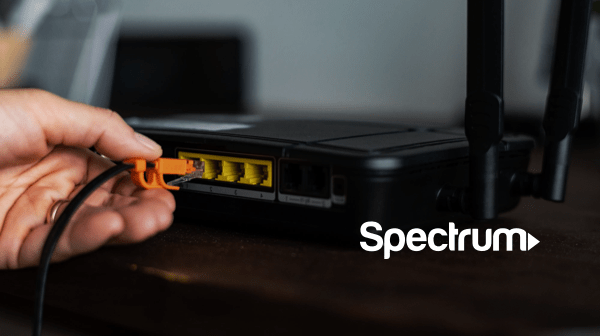Internet is a great tool that we have in our lives. It allows us to connect with people all over the world. But sometimes we can experience problems with connectivity because it’s not always easy to keep up with technological advances. One example of this is when you’re using a mobile phone but your cell service provider decides to disconnect their towers and you lose signal.
When you get disconnected, you are unable to receive data or talk to other users. So how long before this happens to you? To find out the answer to this question, you need to know two things. The first thing you need is a reliable internet connection. After all, if you can’t browse the web, you don’t have much to do on your smartphone. And, the second thing you need to understand is that there are lots of factors involved in keeping an internet connection working. There are many different types of internet connections, including DSL and cable modem.
There are also a lot of reasons why someone might decide to cut off the internet.
What Is Meant by Spectrum?
Spectrum refers to the invisible radio frequencies that wireless signals travel over. Those signals are what enable us to make calls from our mobile devices, tag our friends on Instagram, call an Uber, pull up directions to a destination, and do everything on our mobile devices.
The frequencies we use for wireless are only a portion of what is called the electromagnetic spectrum.
The entire electromagnetic spectrum encompasses other frequencies we interact with daily, even if we don’t think about them. You may remember ROYGBIV from elementary school. That’s the acronym for the colors that make up the visible part of spectrum—the spectrum we see. Other parts of spectrum carry broadcast radio and television or serve other everyday functions.
Portions of electromagnetic spectrum are grouped in “bands” depending on their wavelengths—the distance over which the wave’s shape repeats. The full electromagnetic spectrum ranges from three Hz (extremely low frequency) to 300 EHz (gamma rays). The portion used for wireless communication sits within that space and ranges from about 20 KHz to 300 GHz.
When you go online, you’re connected to the entire world via your computer. If you want to stay safe while surfing, you need to protect yourself from hackers. There are many ways that a hacker can get into your system. For example, they might be able to gain access through your wireless network.
If you have a laptop, you can use the built-in security features to prevent this. However, these settings aren’t always effective. That’s why it’s important to know how to keep your data private. Here are three tips to help you do just that.
Use a VPN connection. A virtual private network (VPN) is an encrypted service that allows you to connect to the internet without being tracked. This means that you can surf safely and securely, even if someone else is using the same Wi-Fi hotspot.
Use strong passwords. You should never reuse your password across different websites. Instead, you should create unique, complex passwords for each website that you visit.
Keep your software up to date. The latest versions of programs like Microsoft Office, Adobe Acrobat Reader, and Java are available free of charge. However, older versions of these applications may contain bugs that could compromise your privacy.
How Does Spectrum Work?
Because a range of spectrum frequencies can be used for cellular communications, different bands have slightly different characteristics. For the purposes of wireless communication, we can think of spectrum in three categories: low-, mid-, and high-band spectrum.
You might have read that we need more of all three for robust 5G networks. That’s because each band of spectrum is essential for a different kind of communication and use case:
- Low-band spectrum (under 3 GHz) travels longer distances with minimal signal interruption. Today’s wireless networks are built primarily on low-band spectrum, and the wireless industry has used this spectrum to build high-speed wireless networks that cover 99.7 percent of Americans.
- High-band spectrum (above 24 GHz) travels much shorter distances—think meters, not miles—compared to low-band spectrum, but offers high capacity and ultra-fast speeds.
- Mid-band spectrum (between 3 and 24 GHz) blends the characteristics of both low- and high-band spectrum—providing a mix of coverage and capacity.
These spectrum frequencies are transmitted between cell sites and our mobile devices. The most common cell sites in use today are the 150 foot cell towers we are accustomed to seeing along highways or atop tall buildings. But small cells—small scale antennas—are now being rapidly deployed to densify network coverage and provide more frequent connection points for 5G’s mid- and high-band spectrum.
Who Manages Spectrum Use?
The Federal Communications Commission (FCC) oversees commercial spectrum allocation. The FCC works collaboratively with the National Telecommunications and Information Administration (NTIA)—which oversees government use of spectrum—international bodies, and Congress to allocate spectrum bands.
The FCC often allocates spectrum for commercial use through a spectrum auction. These auctions work like any other—tracts of spectrum are available to be purchased by the highest bidders, raising money for the U.S. Treasury.
Spectrum can be licensed—meaning it is bought for exclusive use by specific providers—or unlicensed, meaning anyone can use the frequency. Your Bluetooth device and Wi-Fi connection rely on unlicensed bands, for instance. Both licensed and unlicensed spectrum serve important functions, and the FCC has set aside spectrum for both.
Spectrum is a finite resource, however, and we cannot make more of it. But the good news is that spectrum can be repurposed. The federal government controls roughly 60 percent of spectrum, and regulation and legislation can help identify bands that the government should reallocate for commercial use.
Spectrum is a highly complex concept, but the bottom line is that it’s the core component of wireless communications. All of the amazing benefits 5G promises—smart cities, telemedicine, agricultural advancements, and more—depend on it. And the more effectively we utilize it, the greater the benefits.
Why Is It Important?
There’s no doubt that the internet can be extremely useful. From buying a new pair of shoes to finding information about your favorite band, you’ll always have access to the latest news. However, the internet also comes with its own set of problems. One of these is the risk of disconnecting from reality.
If you spend all day browsing the web, you’re likely to become disconnected from real life. This means that you might start to believe things that aren’t true at all. For example, you could read articles on the internet and come to the conclusion that you need to buy a certain product. You would then end up spending money that you don’t actually have.
In addition to this, the internet can make it very difficult to find a job. If you want to get a good position, you’ll need to put in some time searching for one. But, if you’re constantly looking online, you won’t be able to do this.
As you can see, the internet has many benefits and disadvantages. The main thing that you should take away from this article is that you shouldn’t let your addiction to technology control your life. Instead, try to cut back on how much time you spend using the net.

Does Spectrum Have a Grace Period for Internet?
If you’re looking to get your hands on the latest technology, then you might be interested in learning more about the company that makes it all possible. That’s right – I’m talking about the wireless provider known as Spectrum. This article is going to give you an overview of their services so that you can make sure you know everything there is to know about them.
One thing that most people don’t realize when they sign up with a new service provider like Spectrum is that they will lose access to certain features after a set amount of time. For example, many companies offer free Wi-Fi at coffee shops and other public places. If you want to use this feature, then you need to pay for the privilege. However, once you’ve paid, you’ll no longer be able to connect to the network.
You should also expect to pay a monthly fee for the convenience of having unlimited data. In fact, the cost of the plan can vary depending on how much you use it. You won’t be charged extra for using your phone in areas where you aren’t supposed to, but you will have to pay if you go over your limit.
Another thing that people often forget is that some plans come with restrictions. For instance, you may not be allowed to stream videos from Netflix or Hulu.
How Long Is Spectrum Suspension?
When you’re on the internet, you don’t have to worry about any type of interruption. If you want to read an article online, you can simply click away from the screen and return later when you need to finish reading it. However, this isn’t always the case.
There are many situations where you’ll be unable to use the internet. For example, you might be at work and your company’s network may go down. Or, you could be traveling and lose access to the internet altogether. This means that you’ll no longer be able to browse through the web and check email.
If you want to avoid these interruptions, then you should consider purchasing a portable wireless device. You can connect it to your laptop or computer, and you won’t have to worry about losing your connection while using the internet.
It’s important to note that most laptops come with built-in Wi-Fi capabilities. Therefore, you shouldn’t need to purchase an additional piece of equipment in order to get connected to a local hotspot.
However, if you do plan on buying a new laptop, then make sure to choose one that has a reliable battery. The last thing you’d like to happen is to run out of power while you’re trying to use the internet.

![4mvyiaewiw831[1]](https://informationtechnolover.com/wp-content/uploads/2023/02/4mvyiaewiw8311-scaled.jpg)



